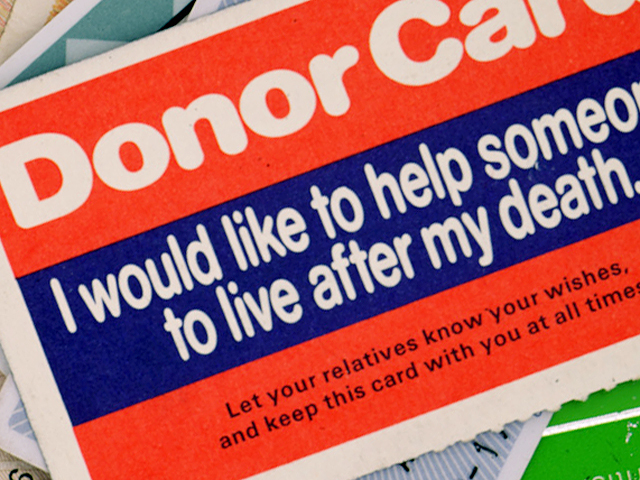
Faith leaders continue to voice their clear opposition to “any weakening of the principle that the donation of organs should be free and voluntary”.
In a letter written ahead of the final vote in the Welsh Assembly, Tuesday 2 July, on the Human Transplantation (Wales) Bill, leaders from the Catholic Church, the Church of England, the Muslim Council for Wales, the Jewish Representative Council, the Wales Orthodox Mission, Patient Concern and Care amongst others have outlined their principled opposition to presumed consent.
They describe ‘deemed consent’ as “a contradiction in terms and a misleading fiction”.
The leaders ‘remain unconvinced that a change in the law to accommodate this fiction will in itself lead to any increase in organ transplantation in Wales.’
They argue that if “the Welsh Government is determined to press ahead with this unnecessary legislation, then the very least that can be done is for it to honour its commitment to introduce soft opt-out legislation where the views and feelings of the bereaved are respected.”
We the undersigned remain opposed to any weakening of the principle that the donation of organs should be free and voluntary.
We therefore regard the concept of ‘deemed consent’ as a contradiction in terms and a misleading fiction, and remain unconvinced that a change in the law to accommodate this fiction will in itself lead to any increase in organ transplantation in Wales.
If, nevertheless, the Welsh Government is determined to press ahead with this unnecessary legislation, then the very least that can be done is for it to honour its commitment to introduce soft opt-out legislation where the views and feelings of the bereaved are respected.
Concern about protecting the role of the family has been voiced throughout the development of this legislation. This dissatisfaction was acknowledged by the Minister on 16 April who said that he would bring forward amendments to address concerns. These were successfully moved at Stage 2 on 22 May. Far from making the Bill better and less controversial, however, they actually make it more controversial. They make it crystal clear that unless the family can provide information about the donation decision of the deceased, they can have no influence regarding the deeming of consent.
When people have either opted out or opted in to organ donation, their wishes should always be respected. When however they have done neither, then the deceased family’s wishes should be sought and respected. This is what a soft opt-out option is and it is not provided for in this Bill.
The Minister’s amendment actually has the effect of making the Human Transplantation Bill a ‘hard opt-out’ Bill, which is precisely what the people of Wales were told they would not get.
Stage 3 consideration of the Human Transplantation Bill on 2 July will provide the last opportunity for the National Assembly for Wales to amend the Bill and provide the soft opt-out system that was promised.
The Bill needs to be amended so that it is clear that the removal of body parts shall not be carried out on the basis of deemed consent where the deceased has not made any clear or express wish to donate and where a person who stands in a qualifying relationship, who is thereby best placed to know the likely views of the deceased, either has not been consulted, or has been consulted and objects to the to the removal of any organ from the deceased.
We call on Assembly Members to support amendments which would accomplish this.
The law must be amended in this way if it is not to be inhuman, unfeeling before the suffering of relatives, and a danger to the public trust and support which are necessary for the practice of organ donation to flourish. Without this there is a real danger that the law could backfire.
Dr Dan Boucher
Director of Parliamentary Affairs, CARE
The Rt Rev Peter Brignall
Bishop of Wrexham
The Rt Rev Thomas Burns
Bishop of Menevia
The Very Revd Archimandrite Father Deiniol
Administrator, Wales Orthodox Mission
Roger Goss
Co-director Patient Concern
Prof David Jones
Anscombe Bioethics Centre
Saleem Kidwai
Muslim Council for Wales
The Most Revd Dr Barry Morgan
Bishop of Llandaff, Archbishop of Wales
Prof Gurch Randhawa
Professor of Diversity in Public Health, University of Bedfordshire
The Rt Rev Edwin Regan
Bishop Emeritus of Wrexham
Stanley Soffa
South Wales Jewish Representative Council
The Most Rev George Stack
Archbishop of Cardiff